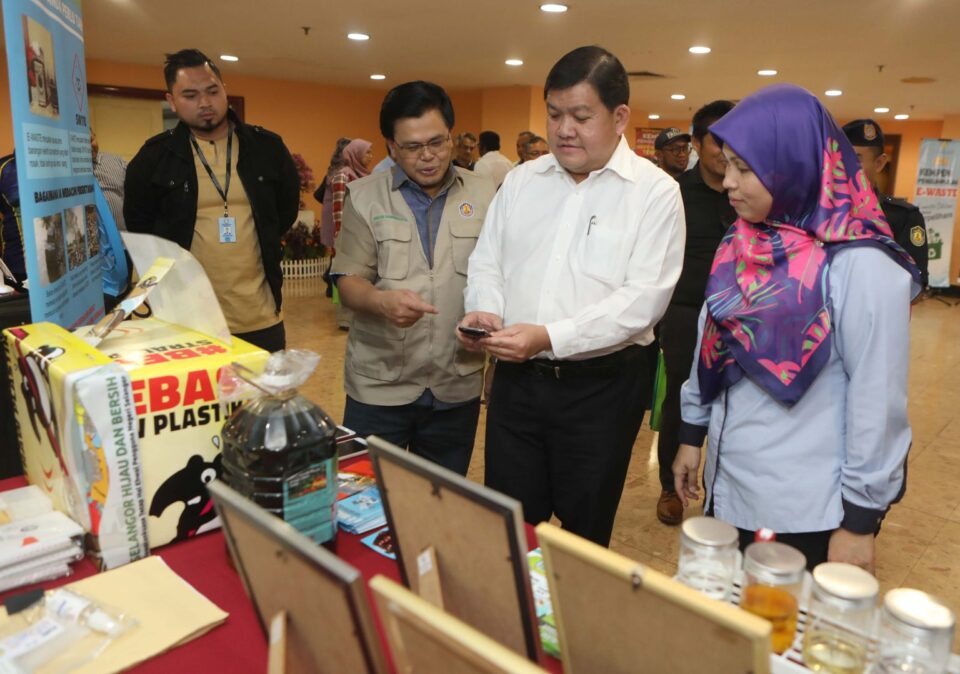By Azian Aziz
AMPANG JAYA, Feb 4 — The state government is conducting research to introduce hydrogen buses within five years or before 2030.
State executive councillor for environment Hee Loy Sian said the bus is environmentally friendly and does not emit fumes like petrol and is more powerful than electric buses.
“This plan is in line with the state government’s efforts to reduce carbon emissions by 45 per cent in 2030 and zero carbon emissions by 2050,” he said after officiating the Environment Day celebration at the Ampang Jaya Municipal Council (MPAJ), Menara MPAJ, last night.
However, Hee said that the state government is facing constraints in obtaining a large number of hydrogen resources unless it is imported.
“Before implementing the use of hydrogen buses, hydrogen production must be available and we have not yet reached the stage of producing hydrogen on a large scale that can be used for vehicles.
“Foreign countries have started producing hydrogen, Sarawak is also leading the way and wants to sell hydrogen to Singapore. Consequently, we intend to work with foreign countries such as Korea to produce hydrogen and hydrogen buses,” he said.
Hee added that the use of hydrogen buses also depends on the decision of the central government because the transport system is under their jurisdiction.
Meanwhile, Hee said the state government will install more electric vehicle (EV) charging stations in public hotspots such as shopping malls and public parking lots this year.
He also said that local authorities have already implemented the effort in addition to several private companies which are interested and will be selected based on their ability to develop and explore this field.
“We will work with private companies. We will prepare the space and they will install it. How they get a return will depend on their discussion with the local authorities on what prices should be charged,” he said.
Hee said that in the future every development, especially commercial ones, will be required to install EV chargers in parking lots as well as in condominium areas.
“This electric vehicle charger is a necessity… It is expected that Proton and vehicle assembly companies in Malaysia will manufacture electric vehicles and the price is very reasonable.
“Foreign companies have also started selling electric vehicles here and we do encourage them because the use of electric vehicles is environmentally friendly. We cannot just depend on petrol,” he said.
Hee added that although the initial price for an electric vehicle is very high, the long-term return will save consumers.
“If you follow the study, an electric vehicle that is charged 100 per cent can travel up to 500 kilometres and the charging price is approximately RM20 to RM30 compared to the price of petrol between RM100 and RM120.
“The difference is very significant but electric vehicles need between three and four hours to charge,” he said.
On July 7 last year, Hee said the state government intends to establish 10,000 EV stations in public areas by 2025 in collaboration with local authorities and the private sector to encourage the public to use electric vehicles, thus helping to reduce carbon emissions.
Meanwhile, Hee said the 1,400 megawatt power plant that uses coal in Kapar, Klang will be replaced with more environmentally friendly machinery in 2030.
He said the plant contract under Tenaga Nasional Berhad (TNB) will expire around the same year and the state government plans to make a new tender.
“After the contract ends, we plan to build a power plant that uses gas and hydrogen, which is more affordable than coal, which is expensive and not environmentally friendly,” he said.
Hee added that so far, an environmentally friendly power plant is being developed in Pulau Indah, Klang.
“The 1,200 megawatt plant uses turbine and gas energy,” he said, adding that the plant was built by Worldwide Holdings.
On 30 March 2021, Bernama reported that the plant was developed by Pulau Indah Power Plant Sdn Bhd, 75 percent of which is owned by Worldwide Holdings and the other 25 percent by Korea Electric Power Corp.
The plant is located in a reclaimed area of 24.28 hectares in Klang subdistrict close to the Port of Klang Free Zone.
The RM3.3 billion project is partly funded by Bank Pembangunan Malaysia Berhad which is wholly owned by the federal government through the Minister of Finance (Incorporated).





